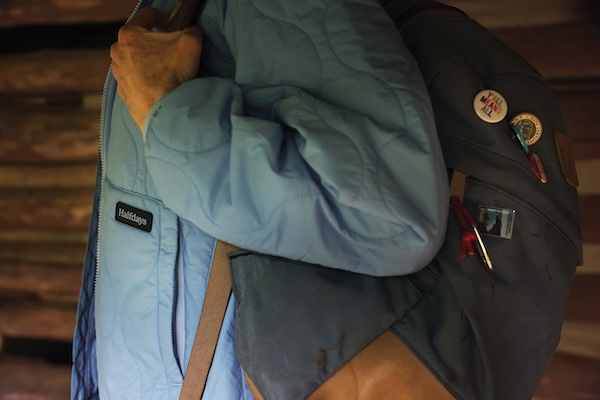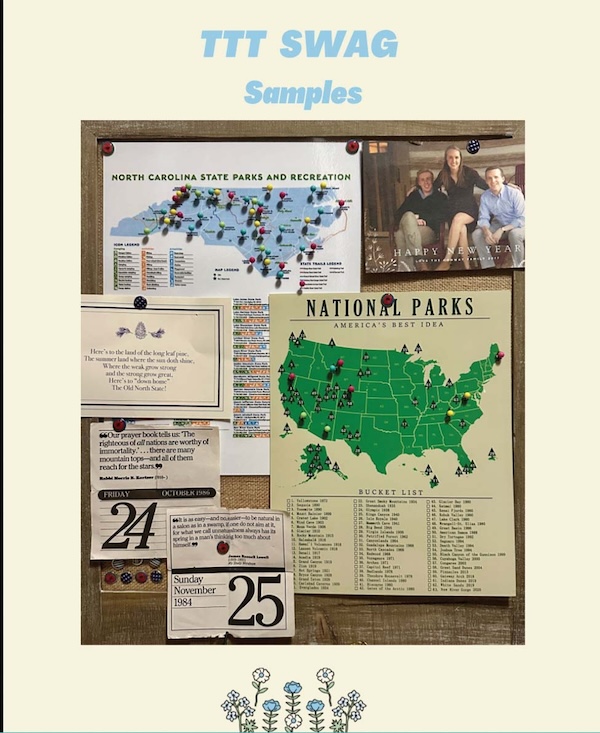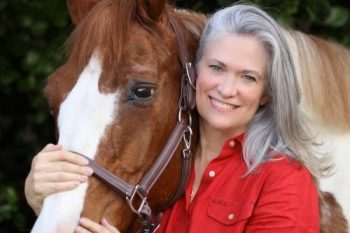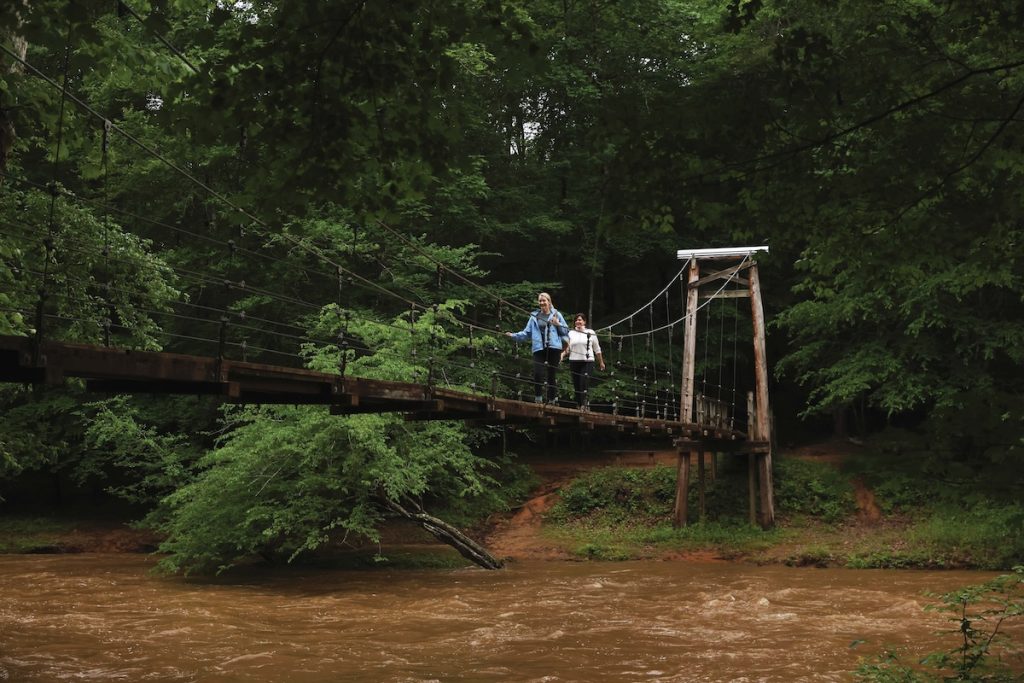
When we were at Wake Forest, my good friend Jan Boyce Sloan (’84) and I lived across the hall from each other in New Dorm (now Luter). We never turned down a chance to show up or go out, even when it meant a simple stroll through Reynolda Gardens or bunny hopping on the Quad.
We were always in motion, and after raising our children and pursuing our careers, we still are. We just never could have imagined we would have a “franchise agreement” to spread the fun to friends, who, like us, treasure the gifts of nature and heed the command, “Go take a hike.”
We are The Tar Heel Trail Trammps, and this is where our journey began.
“You find the path by walking it.” — the late Reynolds Professor of American Studies Maya Angelou (L.H.D. ’77)
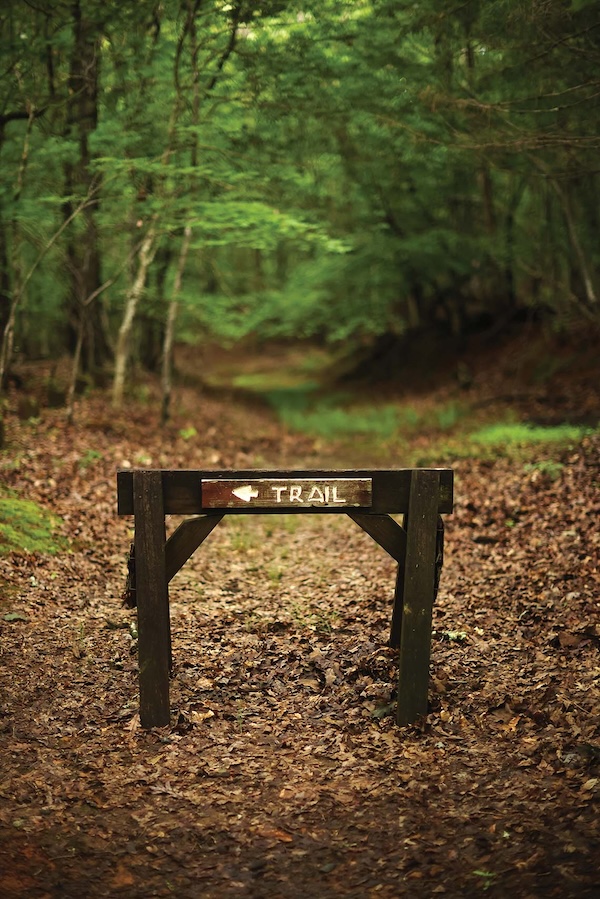
Jan and I both grew up in the Triangle, she in Durham, North Carolina, and I in Chapel Hill. We were both ready for a change after high school and chose to leave our stretch of Tobacco Road to attend Wake Forest. That’s where we met. We bonded over love of our mutual friends, 1970s and ’80s music, children, education and an undeniable talent for ridiculousness. We had a secret Triangle-area handshake and agreed it was no accident that our kooky mothers shared the same birthday.
Our Wake Forest education seeded our intellectual passions and career trajectories. Jan became an education major, and I studied psychology. It was Professor Angelou’s class on Black literature that unlocked a dormant part of my silly, sorority girl brain. I will never forget walking like a zombie from that first class seeing the world differently. I was slowly growing up and moving out of my comfort zone, but mostly, for a long time afterward, I stayed on my expected path of a young woman raised in an old North Carolina family.
Following college and a job in New York, graduate school brought me back to Chapel Hill and to my buddy Jan. Our walks resumed, and we were ’80s stereotypes doing Jane Fonda exercises in jewel-toned spandex. As we entered our householding days, we lived in different cities again. When we managed to meet for walks, we were pushing strollers and leading dogs.
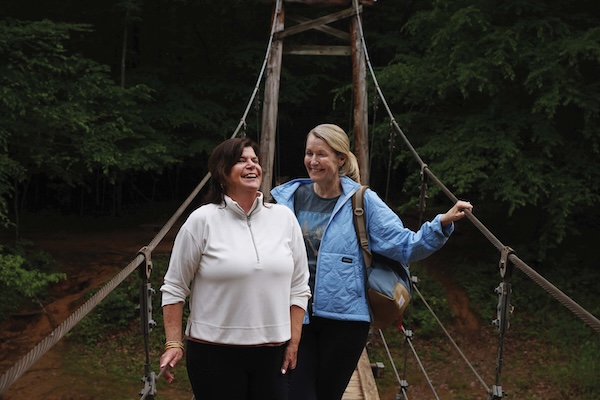
Pro Humanitate manifested for us in similar but distinct ways. Jan became an educator, and I became an education activist. I started my career in corporate philanthropy, but as educational inequity increased, I saw how market-driven social change became clearly harmful to my public school community in Charlotte. Walks on the Carolina Thread Trail morphed into movement-building meetings and political strategy sessions. My fellow activists and I walked countless miles, strategizing how to create coalitions to address systemic issues of racism and economic injustice.
“We must keep walking because with movement comes meaning, and with meaning comes gratitude. And that path will lead us home.”
— The Rev. Susan Sparks (J.D. ’87), senior pastor at Madison Avenue Baptist Church in New York City
Over those years, I drove countless hours between Charlotte and the Triangle to find clients and community insupport of educational justice and equity. Eventually, I knew it was time to go home yet again — to Chapel Hill — and reclaim it in the present, not as the city of my childhood. And there was Jan, ready to go outside with me. She and I found new walking paths and workouts minus the jewel-toned spandex.
As was the case for many women, work and family responsibilities were our “hobbies” in our householding years. As empty nesters, Jan and I finally had time for a real hobby. My consulting brain kicked in on one of our walks. Walking is not a hobby, but hiking sure is!
That one word, “hiking,” changed everything, and the “business plan” unfolded. Jan saw a piece on the local news about a family who hiked all of the 41 North Carolina state parks. We had our mission! Our goal was to do one hike a week and combine it with local food and culture.
We needed a brand. My amazing athletic friends in Colorado have a group called “Run Like A Mother,” and an older friend in Australia has “The Wobblies.” We were somewhere in between, and the name finally hit us — The Tar Heel Trail Trammps. It covered it all: our love of North Carolina plus the triple entendre meant to represent hiking, 1970s funk and ridiculousness.
That one word, “hiking,” changed everything, and the “business plan” unfolded.
As good middle children, we would be co-leaders, alternating planning duties and playing to our strengths. Jan loved to drive and nicknamed her new car “Trammpy.” Ever the good educator, she made us a laminated map and bought a North Carolina State Parks Passport for each of us to track our progress. I was the designated photographer, history nerd and DJ. Our families outfitted us with “Vote for Parks” T-shirts and Tar Heel Trail Trammps hats. My daughter, Adelaide, created a fun franchise agreement, which, with a wink and a smile from us, might serve as an inspiration for others. Ever the enthusiast, Jan declared, “Let’s do this!” and we launched our venture on Nov. 11, 2019.
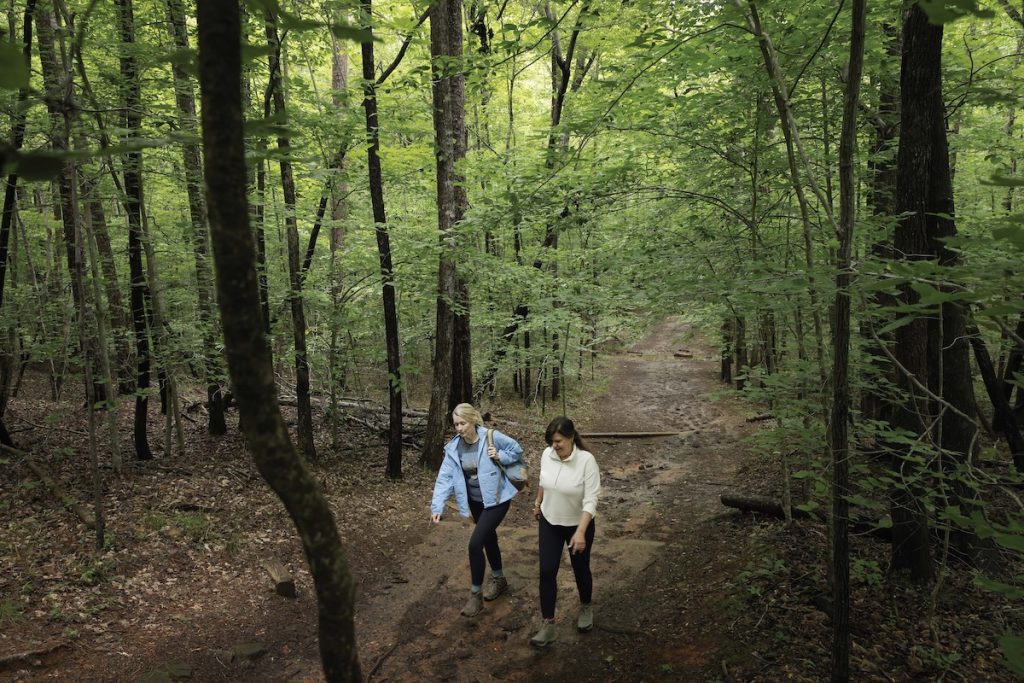
As the structure and rhythm unfolded, our newfound hobby brought unexpected blessings. We started with parks in Durham, Orange and Wake counties, followed by day trips, until we covered most of the Interstate 85 corridor. We then planned overnight trips to the far reaches of the state. Enthusiasm and curiosity are core to Trail Trammp values, and each park was our “favorite.” Our love for North Carolina’s beauty, people and culture expanded with each hike.

On March 11, 2020, the World Health Organization declared COVID-19 a pandemic, but we didn’t stop hiking. To our backpacks, we added masks, hand sanitizer and better snacks. Planning became more complicated, but our awe and appreciation for Mother Nature and North Carolina’s park system became more acute.
When I feel despair, though, our wonderfully silly hobby is an antidote.
When Jan and I were growing up, North Carolina promoted itself as the “Variety Vacationland.” The slogan held up for us modern-day Trail Trammps. We found delight in a jog up Jockey’s Ridge just in time to catch the sunset; the charm of historic Edenton; the enthusiasm of Allen, a snake-handling Medoc Mountain State Park employee; a nostalgic lunch at Bill’s Hot Dogs in “Little Washington;” and a good laugh over being lost for hours in a longleaf pine forest.
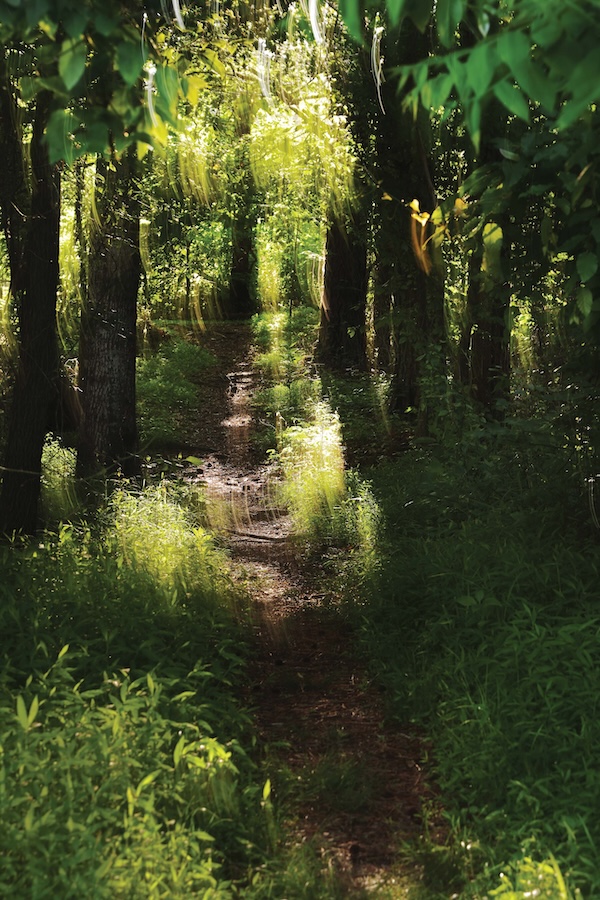
Sometimes other Wake Forest friends joined us for hikes or marking milestones — occasions to celebrate or hikes shared while we grieved losses of family members and friends. Mother Nature sheltered and nurtured us in sorrow.
As we approached our goal of hiking all the parks, we didn’t want the journeys to end. We wanted the fun to go on. We wanted these walks with meaning to continue. We wondered, “What next?” State forests? The Mountains-to-Sea Trail?
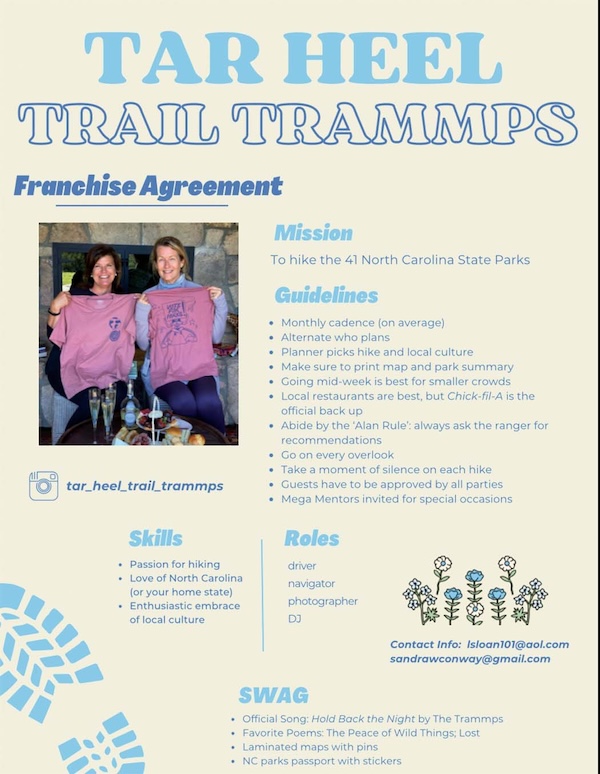
Our best Trail Trammps idea came next. We would go national and … drumroll … bestow upon ourselves another name: The Super Trammps! It made sense because the national parks are often called “America’s Best Idea.”
We decided to travel twice a year based on pulling the names of two of the 63 national parks out of a hat. Some of our supporters shuddered at the randomness, but Jan and I were confident every park would be our “favorite.” The naysayers came around once the variety, spirit and fun unfolded. Saguaro National Park in Arizona was our first, Lassen Volcanic National Park in California our second and Virgin Islands National Park on the island of St. John our third. Each was uniquely beautiful, and, no longer naysayers, our family members joined us when they could.
Last fall I was exhausted after working on the election. It was Super Trammp serendipity that we picked Hot Springs National Park in Arkansas for our next hike. What a gift in the midst of that fraught season to see the Clinton presidential library and the statues of the Little Rock Nine and then hike and relax in the home of U.S. spa culture.
Our spring trip this year was a hike in our country’s newest national park, the New River Gorge National Park & Preserve in West Virginia.
“I think the gift of women’s knowledge is that we always come with both/and, and create spaces of creativity, to be and to also be able to do, and to think through intersections and to do more than one thing at one time.” — Professor Melanie L. Harris of the Wake Forest School of Divinity
Our “old” hobbies of work and family continue to ebb and flow. Jan retired from leading a preschool, and I shut down my social impact consulting practice. Eldercare and engagements require lots of care and conversation.
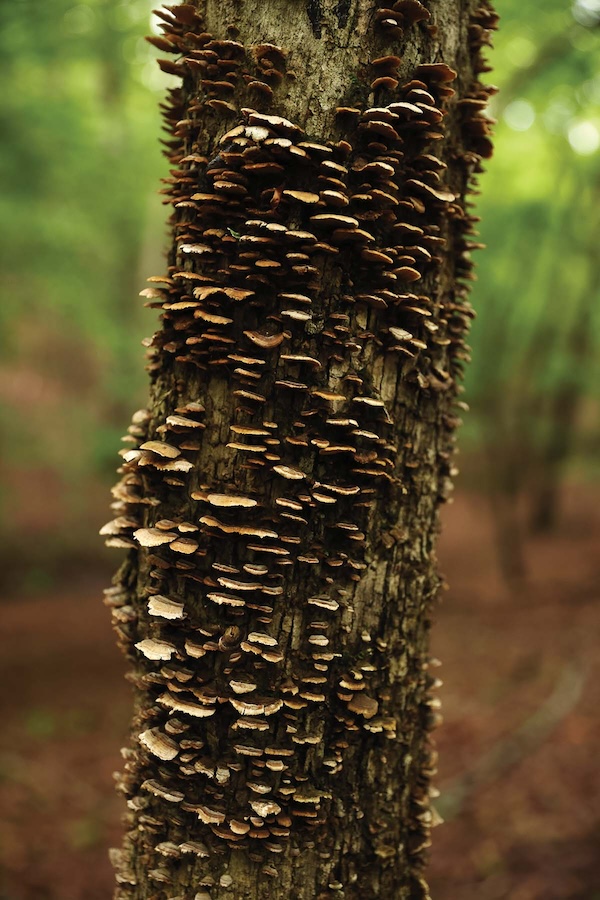
As I write this, chaos and cruelty swirl in the world, and I often feel sadly lost among the longleaf pines. Hurricane Helene ravaged western North Carolina last fall, and Jan and I mourn the destruction of some of our treasured landscapes. As National Park Service employees are fired, we ache for the dedicated people who maintain and care for our parks and welcome hikers like me and Jan.
When I feel despair, though, our wonderfully silly hobby is an antidote. It fills me with joy and reverence for Mother Nature and gratitude for God’s gracious gifts of wise, irreverent Wake Forest women.
Jan and I are willing to share our tips, so let us know if you want your own “franchise.” We wish for you the comfort of Wendell Berry’s “The Peace of Wild Things,” the official poem of The Tar Heel Trail Trammps.
The Peace of Wild Things
When despair for the world grows in me
and I wake in the night at the least sound
in fear of what my life and my children’s lives may be,
I go and lie down where the wood drake
rests in his beauty on the water, and the great heron feeds.
I come into the peace of wild things
who do not tax their lives with forethought
of grief. I come into the presence of still water.
And I feel above me the day-blind stars
waiting with their light. For a time
I rest in the grace of the world, and am free.
Wendell Berry, “The Peace of Wild Things” from New Collected Poems.
Copyright © 2012 by Wendell Berry. Reprinted with the permission
of The Permissions Company, LLC on behalf of Counterpoint Press, counterpointpress.com.
Sandra Wilcox Conway (’83, P ’15) has worked in social impact consulting, philanthropy and activism since the mid-1980s, primarily in support of public education, civic engagement and women’s leadership. She has a master’s in education and an MBA from the University of North Carolina at Chapel Hill. She is enrolled in the Master of Arts in Social Justice program at Union Theological Seminary in New York City and serves on a board campaigning to establish the Julius Rosenwald & Rosenwald Schools National Historic Park in Chicago. She and her husband, Peter Conway, live in Chapel Hill and have three adult children, Peter (’15), Ben and Adelaide.
